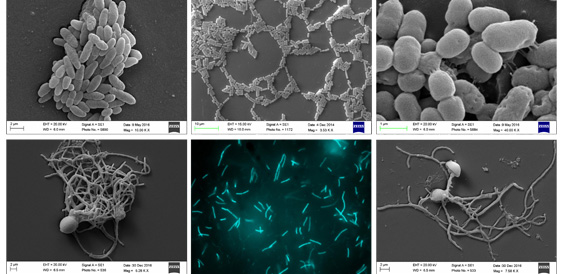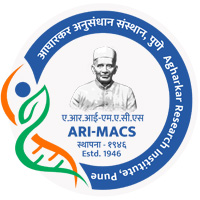ABOUT US
The MACS Collection of Microorganisms (MCM) is a national facility affiliated to the Agharkar Research Institute (ARI), an autonomous institute of the Department of Science and Technology (DST), Government of India, located at Pune. The origin of MCM can be traced back to the joining of Prof. Arvind D Agate at the Maharashtra Association for the Cultivation of Science (MACS) Research Institute (now ARI)in 1980-81. He started working on microbial leaching of Manganese and Copper ores and envisaged the idea of a collection of such unique microorganisms. He modified one of the laboratories in the microbiology department of MACS to establish the culture collection. His efforts paved way for the inauguration of MCM in 1981 by Professor VBD Skerman, University of Queensland, Australia who is considered as a reforming
MICROORGANISMS

force in bacterial systematics and nomenclature (see https://doi.org/10.1099/00207713-45-2-412) and was the first director of the World Data Centre for Microorganisms (WDCM). Since 1982, MCM has been registered with the WDCM (No. 561, https://doi.org/10.12210/ccinfo.561) and was subsequently recognized by the World Federation for Culture Collections (WFCC) in 1983-84. On 11th April 2024, MCM was accordedan affiliate membership of the WFCC.
MCM is serving the nation as a distinguished repository of anaerobic and extremophilic microorganisms. It is a well-equipped modern facility geared for the isolation, identification, characterization, preservation, and bioprospecting of tough-to-cultivate microbes, such as the methanogenic archaea, anaerobic bacteria and fungi as well as other extremophiles including alkaliphilic and thermophilic bacteria. In addition, standard and type strains routinely used by microbiology laboratories are also maintained at MCM. Bioresources from MCM are regularly used in bioenergy, biomining, metal and microbe interactions, industrial waste treatment and several other microbe-mediated processes. In fact, nearly all microorganisms in MCM collection are very well-studied and have at least one potential application in the field, details about which can be found in our publications using these resources.
For the collections’ mission and vision, please click here.


